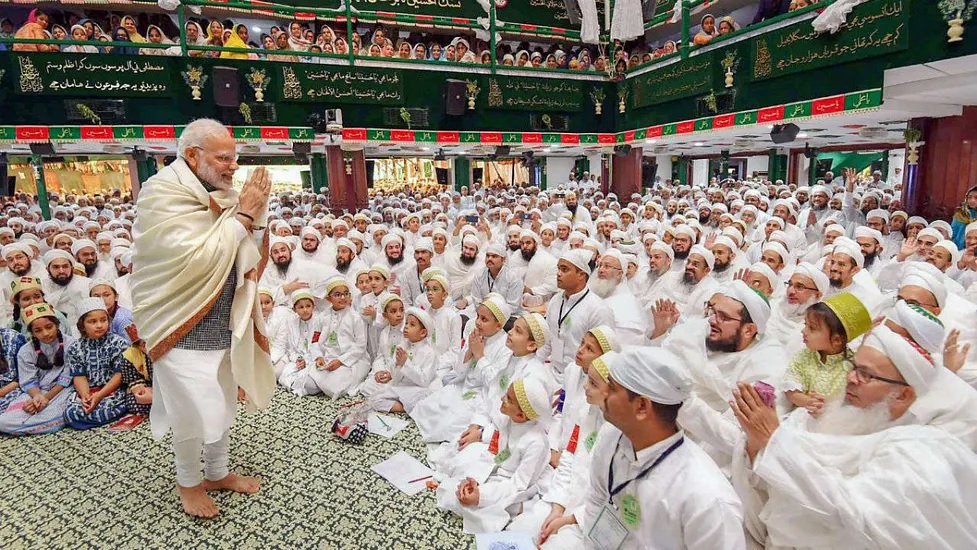
Among several concerns about India’s human rights performance raised at the United Nations’ 41st Universal Periodic Review, a noteworthy one was the issue of female genital mutilation or FGM, with Costa Rica recommending India develop a national plan to tackle the issue.
Interestingly, India itself made similar recommendations on FGM during the UPR to Guinea and Mali. However, when it came to the practice about which Bohra feminists have been vocal back home., the Narendra Modi government has so far failed to even acknowledge that FGM exists.
Colloquially known as khatna or khafz, FGM has been a quiet practice within the Bohra community, a sect of Shia Muslims, for centuries. The debilitating practice involves the cutting of the clitoral hood when a girl child turns seven years old. The reason behind the practice is primarily motivated to ‘control’ the sexual drive of a woman and ‘save her’ from becoming ‘promiscuous’ and ‘oversexed’.
According to the World Health Organization (WHO), FGM has no health benefits and harms girls and adult women in many ways. It often leads to immediate health risks such as infections, pain, and bleeding. In the long term, women who are subjected to this practice report that sex is never a pleasurable activity. In fact, for some, it is so painful that they dread sex.
The Bohra community in India, numbering approximately 2 million, is largely situated in four large western states—Gujarat, Maharashtra, Rajasthan, and Madhya Pradesh. Two studies by survivor-led organisations Sahiyo and WeSpeakOut, conducted in 2016 and 2017, affirmed that over 80 per cent women in this community have undergone FGM.
Media has largely reported on these anecdotal studies, with some carrying detailed interviews with survivors. Two important cases in Detroit and Sydney, where FGM is illegal, involve Bohra expats. In India, the Supreme Court is hearing a Public Interest Litigation on the validity of FGM. The government however has so far refused to acknowledge that FGM even happens in India. The Ministry of Women and Child Development has issued a denial of the existence of FGM in Parliament as well as the Supreme Court.
Little or no global attention is on Asian countries like India. This stems from the oft-mentioned fact that there is no official data on FGM in India, Pakistan, Malaysia, Singapore, Sri Lanka, Indonesia, United Arab Emirates, and Iran, among others. The practice in these countries continues to be invisible, except for the anecdotal data from survivor stories and the small, yet important, research studies conducted mostly by survivors and activists. Even at the UPR pre-sessions where we met several member countries for support, most expressed surprise when we spoke to them about FGM in India.
On February 6, the International Day of Zero Tolerance for Female Genital Mutilation, UN Secretary General Antonio Guterres gave a call to accelerate investment to end FGM and uphold the human rights of all women and girls. India did not respond.
For the first time last November, international attention was drawn to FGM within Indian borders.This was the first attempt at participation in a global human rights review process. The UPR is essentially a means for holding accountability through a periodic review of the human rights records of all 193 UN member states. It provides an opportunity for all States to declare what actions they have taken to improve the human rights situations in their countries, while gently nudging them to overcome their challenges. It is a political and consultative process, with every country getting less than 55 seconds to make their recommendations.
Just four days ago, Sabrangindia erported how, the H.H. Syedna Taher Fakhruddin, leader of the Dawoodi Bohra Community writes to PM Modi to ban FGM practice. Syedna Taher Fakhruddin Saheb, the head of the Dawoodi Bohra community, has written a letter to the Hon. Prime Minister, Shri Narendra Modi, expressing his strong opposition on female genital mutilation (FGM) urging that it be made illegal in India. As of yet, there is no law in India forbidding FGM. This is in the context of the Prime Minister’s outreach to minorities, especially the Dawoodi Bohra Community to voice their concerns.
In order to put an end to FGM, Syedna Taher Fakhruddin, in the letter addressed to Prime Minister Narendra Modi said, “In particular, the Dawoodi Bohra community has been in the limelight recently because of the issue of female genital mutilation (FGM). I would like to take this opportunity to reiterate my position and unequivocally condemn the practice of FGM. I also call on the government to introduce legislation to ban the practice and make FGM illegal.”
In a recent interview, His Holiness said that “the intent of all jurisprudential laws in our faith is the betterment of the lives of individuals and society as a whole. And since khafz was being practiced in a clandestine manner which resulted in trauma for young girls this was contrary to the intent. And so for the protection of young girls in the community and to clarify the intent of the religious practice I issued a clear statement in 2016. This statement is published on our website: https://fatemi.app/
His Holiness added that “khafz should not be done in a clandestine manner and in unhygienic environments as it can lead to trauma and serious irreversible medical complications. It should be a woman’s individual decision whether to do this medically, legally and religiously sanctioned procedure once she reaches adulthood. In contrast, Female Genital Mutilation (FGM) is a horrific and un-Islamic practice and we condemn it categorically.”
Related:
‘Ban FGM’: Rival Syedna writes to PM
WeSpeakOut ‘extremely disappointed with Michigan court verdict in FMG case
Bohra Clergy Bows to Australian SC, cries halt to FMG